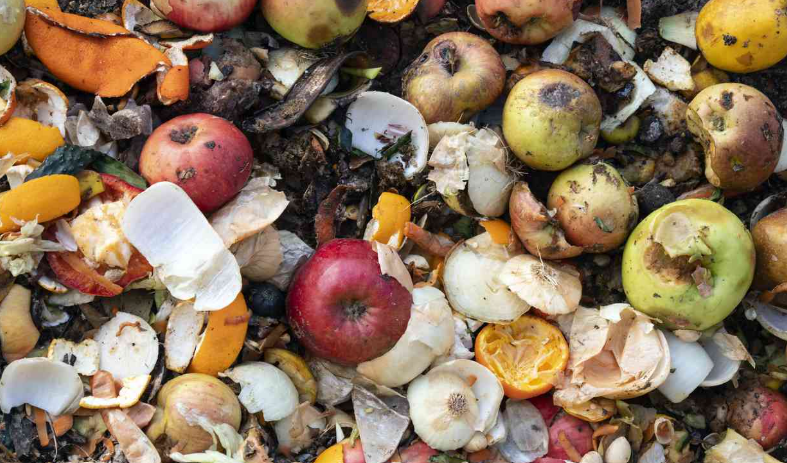Brunch n Learn Recap — Food Waste
September 9, 2024

Tackling Food Waste in Our Community
On August 14, 2024, the Green Business Program hosted a Brunch & Learn event focused on the critical issue of food waste. Local businesses, sustainability experts, and service providers gathered to share insights and strategies for reducing food waste, revealing both the surprising extent of the problem and practical solutions to address it.
Eye-Opening Discoveries in Food Waste
The panelists kicked off the event by shedding light on the alarming scale of food waste. Brittani White (Operations & Engagement Project Manager, Momentum Recycling) shared that up to 80% of waste in some businesses is food waste. Dana Williamson (Founder & CEO, Waste Less Solutions) highlighted that many people are unaware of the environmental damage caused by food waste in landfills, emphasizing the need for greater awareness and action.
Two other panelists shared their hopeful stories, demonstrating just how manageable the problem can be. Carissa Deveport (Owner, Este Pizza) revealed that since partnering with Momentum in 2021, they’ve successfully diverted 26,000 pounds of food waste. Jon Green, (Office Manager, Savoury Kitchen) underscored the simplicity of the solution—providing labeled bins and setting expectations around all employee behaviors can make a significant difference.
Managing Pre-Consumer Food Waste in the Kitchen
Managing food waste before it even reaches the consumer was another critical topic. Panelists shared a variety of strategies employed in restaurant kitchens:
- Occupancy Reports: Keeping a close eye on expected customer numbers allows for smarter purchasing decisions, particularly during quieter months.
- Creative Recipes: Using scraps from one recipe as ingredients in another, such as in dressings or sauces, can significantly cut down on waste.
- Animal Feed: Some businesses bring food scraps to chickens, turning waste into a resource.
- Catering Industry Practices: Thoughtful menu planning and combining orders reduce waste in catering. Offering a “chef’s discretion” menu based on available ingredients also helps.
- Donating Leftovers: Leftover food or last-minute canceled orders can be donated to organizations like Peace House, ensuring that prepared food doesn’t go to waste.
- Customer Education: Educating customers about sustainable menu options can be an effective marketing strategy.
Addressing Post-Consumer Food Waste
Even with preventive measures, post-consumer food waste is inevitable. Momentum helps businesses by setting up diversion systems, collecting food waste, and delivering it to Wasatch Resource Recovery, where it’s converted into methane for energy and compost for farmers.
Dana from Waste Less Solutions emphasized that not all food waste is truly waste—edible surplus can be redirected to feed people. By partnering with organizations like Waste Less Solutions, businesses can ensure that surplus food is donated, while inedible waste is composted.
Making Food Waste Reduction the Norm
To make food waste reduction a standard practice, businesses need to embed it into their culture. Local governments can support this by implementing ordinances that encourage food waste diversion. Although there may be initial costs, the long-term savings and environmental benefits make these practices worthwhile. Partnerships with nonprofits and waste recovery services are crucial in ensuring that both edible and inedible food waste is effectively managed.
Didn’t Get to Ask Your Question?
Don’t hesitate to get in touch! As always, you can reach out to your Green Business coordinators!
Brittani White – Operations & Engagement Project Manager, Momentum Recycling
Dana Williamson – Founder & CEO, Waste Less Solutions
Carissa Deveport – Owner, Este Pizza
Jon Green – Office Manager, Savoury Kitchen